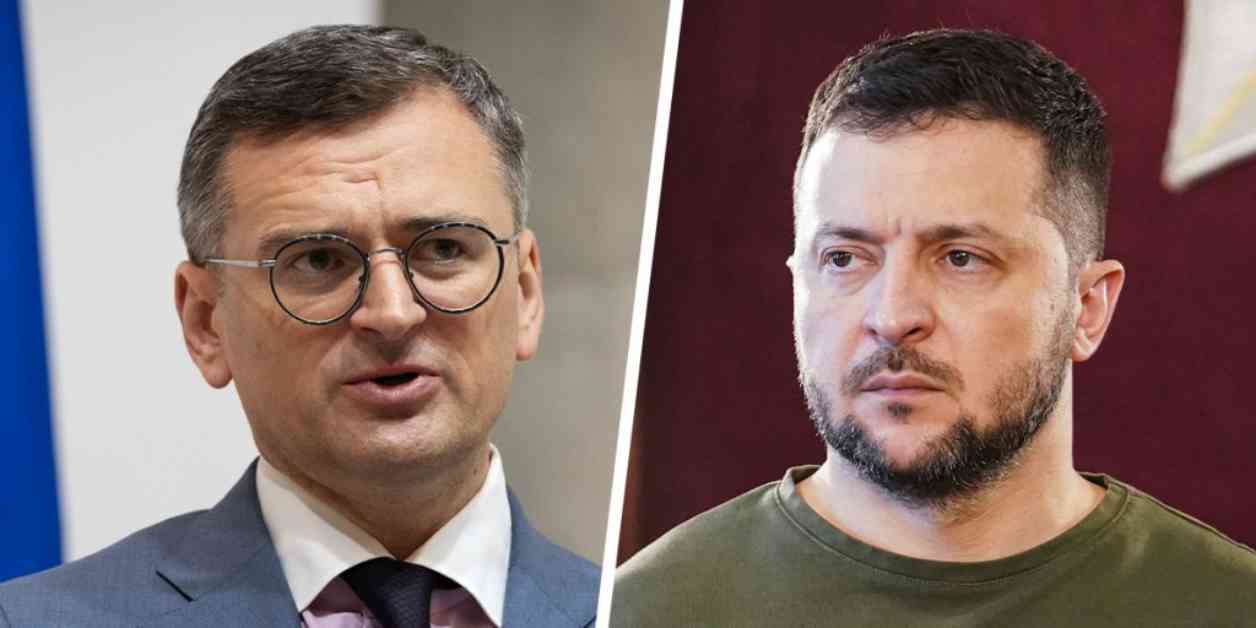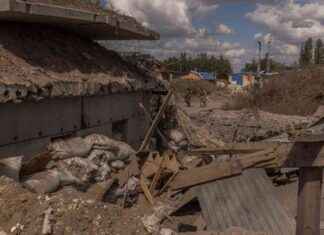Ukraine is undergoing a major leadership shakeup as Foreign Minister Dmytro Kuleba and several other high-ranking officials resign in the midst of ongoing conflict with Russia. The resignations signal a significant shift in the country’s government structure as President Volodymyr Zelenskyy seeks to implement a “major government reboot” in response to the escalating crisis. The changes come as Ukraine continues its offensive inside Russia while facing deadly missile strikes that have claimed the lives of civilians and military personnel.
High-Level Resignations and Government Reboot
The recent wave of resignations in Ukraine’s government marks the most significant reshuffle since the full-scale Russian invasion. In a post on Telegram, David Arakhamia, leader of President Zelenskyy’s “Servant of the People” party, announced that more than half of the cabinet would undergo changes in a major government reboot. This move comes as Ukraine grapples with the challenges of war and seeks to restructure its leadership to meet the demands of the current crisis.
Among those who have tendered their resignations alongside Foreign Minister Kuleba are Deputy Prime Minister Iryna Vereshchuk, Deputy Prime Minister Olha Stefanishyna, Minister for Strategic Industries Oleksandr Kamyshin, Minister of Justice Denys Maliuska, and Environment Minister Ruslan Strilets. The departure of these high-profile officials underscores the magnitude of the changes taking place within Ukraine’s government as it navigates the complexities of the conflict with Russia.
President Zelenskyy has hinted at the upcoming changes, emphasizing the importance of setting up state institutions to achieve the desired results for the country. He has stressed the need for reforms in parliament and his office to address the evolving situation in Ukraine and ensure effective governance in the face of external threats.
Zelenskyy’s Vision for Victory
In a recent interview with NBC News, President Zelenskyy outlined his “victory plan” to end the war with Russia, highlighting the strategic importance of holding onto seized territories for as long as necessary. While emphasizing Ukraine’s determination to secure its borders and defend its sovereignty, Zelenskyy also underscored the country’s intention not to impose its way of life on Russian territories in the long term.
The ongoing conflict between Ukraine and Russia has seen both sides engage in military operations, with Ukraine launching incursions into Russian territory while facing advances by Russian troops in its eastern regions. Despite facing losses and daily attacks, Ukraine has maintained its offensive posture, targeting Russian military facilities and infrastructure in a bid to weaken its adversary’s capabilities.
The recent missile strikes on a military facility in the central city of Poltava resulted in significant casualties, with 53 people killed and over 270 injured. The attack highlighted the escalating violence in the region and the devastating impact of the conflict on civilians and military personnel. As both sides intensify their military operations, the toll on human lives and infrastructure continues to mount, underscoring the urgent need for a peaceful resolution to the crisis.
International Response and Humanitarian Concerns
The conflict in Ukraine has drawn international attention and raised concerns about the humanitarian situation in the region. As the violence escalates and casualties mount, the need for immediate humanitarian assistance and diplomatic intervention becomes increasingly urgent. The United States and other international partners have been called upon to support Ukraine in its efforts to defend its sovereignty and protect its people from further harm.
The targeting of civilian areas and critical infrastructure in Ukraine by Russian forces has raised alarm among humanitarian organizations and human rights advocates. The indiscriminate use of force and disregard for civilian lives have sparked outrage and condemnation from the international community, prompting calls for a ceasefire and negotiations to end the conflict peacefully.
As the situation in Ukraine continues to deteriorate, the need for coordinated international action to address the root causes of the crisis and support those affected by the conflict becomes paramount. The resilience and determination of the Ukrainian people in the face of adversity serve as a testament to their unwavering commitment to defending their country and securing a better future for themselves and future generations.
In conclusion, the leadership changes in Ukraine’s government and the escalating conflict with Russia underscore the urgent need for diplomatic solutions and international support to address the crisis. As President Zelenskyy and his administration navigate the challenges of war and seek to rebuild the country’s governance structure, the resilience and courage of the Ukrainian people remain a beacon of hope in the face of adversity. It is imperative for the international community to stand in solidarity with Ukraine and work towards a peaceful resolution to the conflict that respects the sovereignty and rights of all parties involved.



























